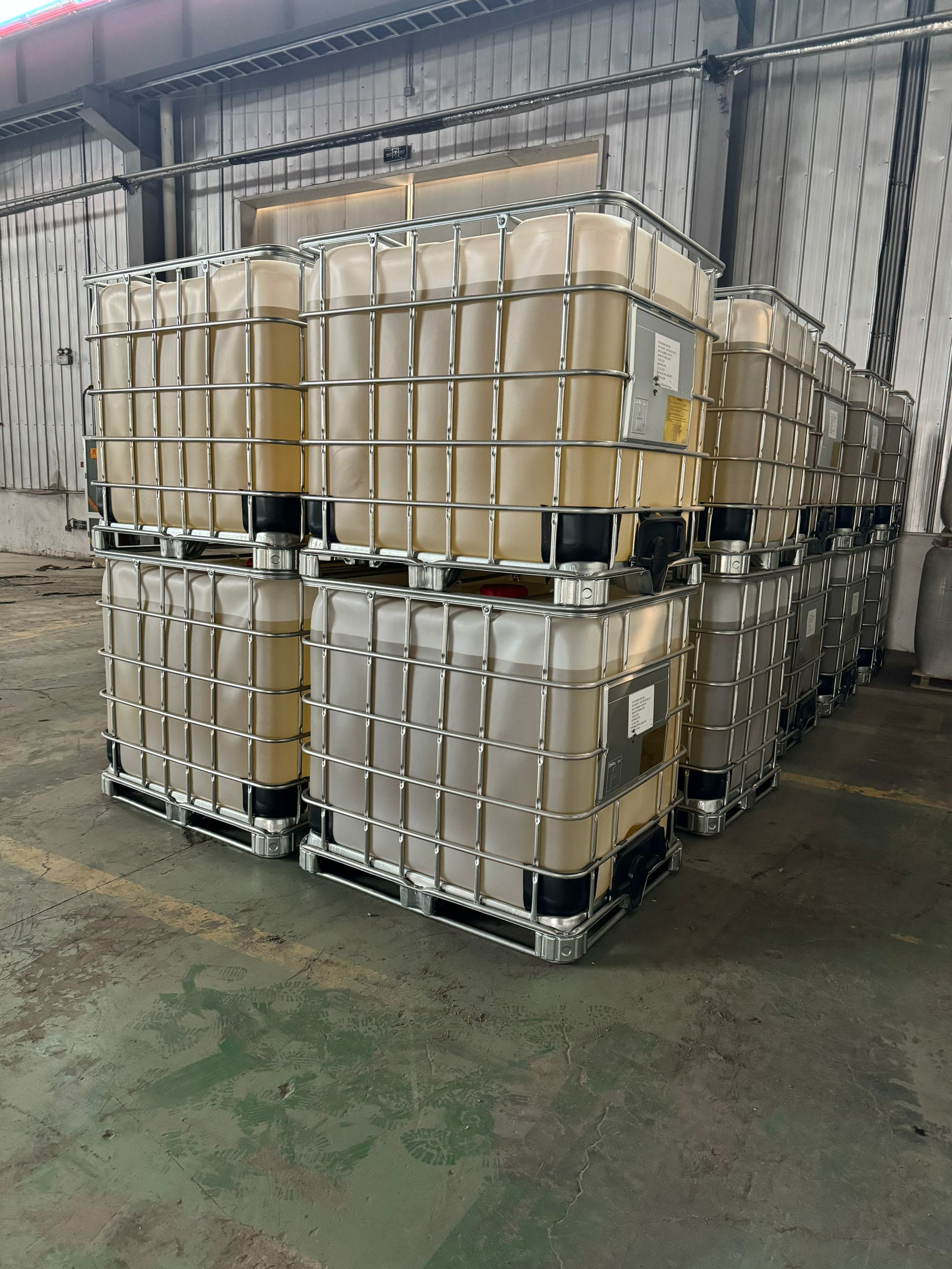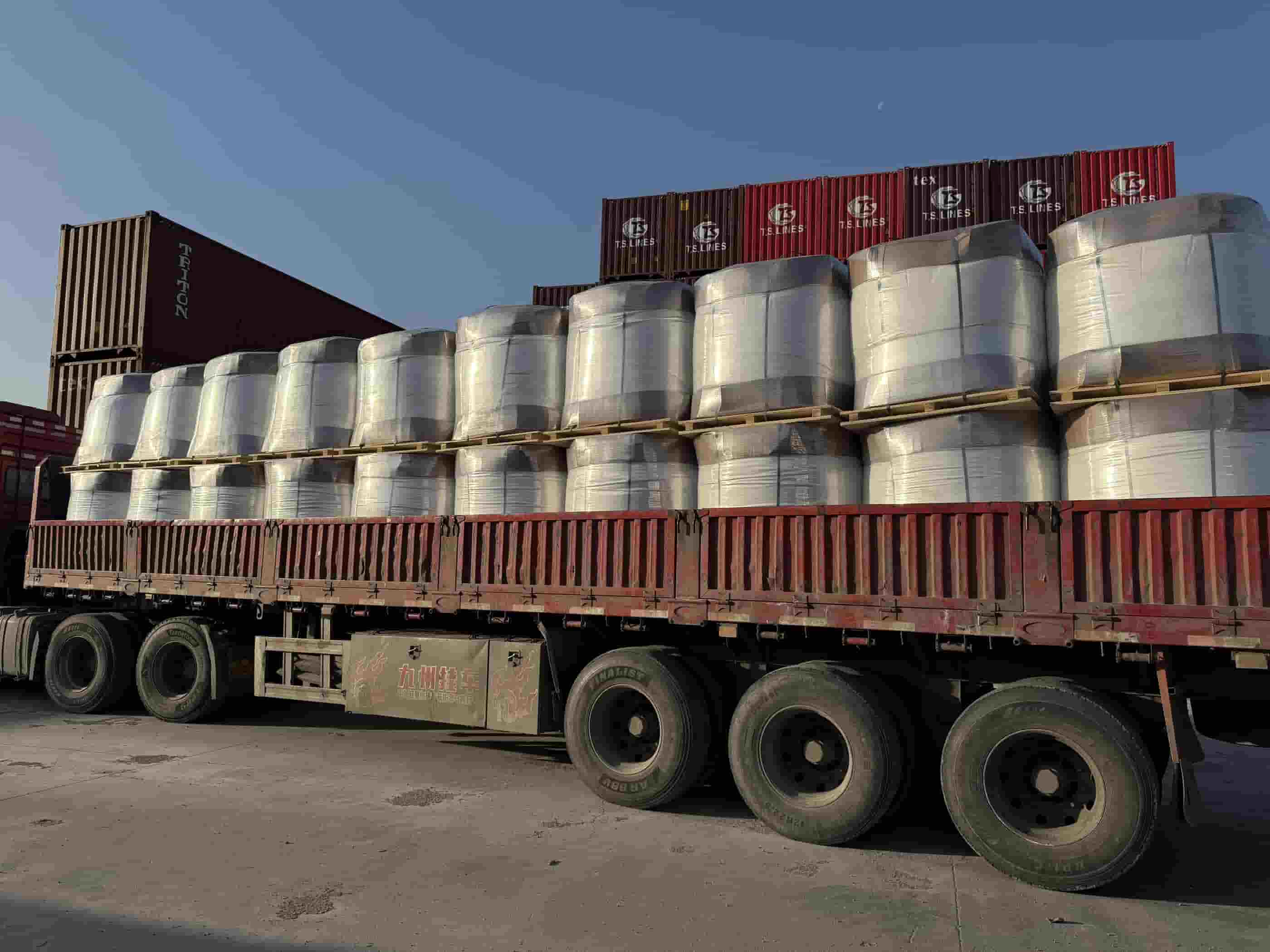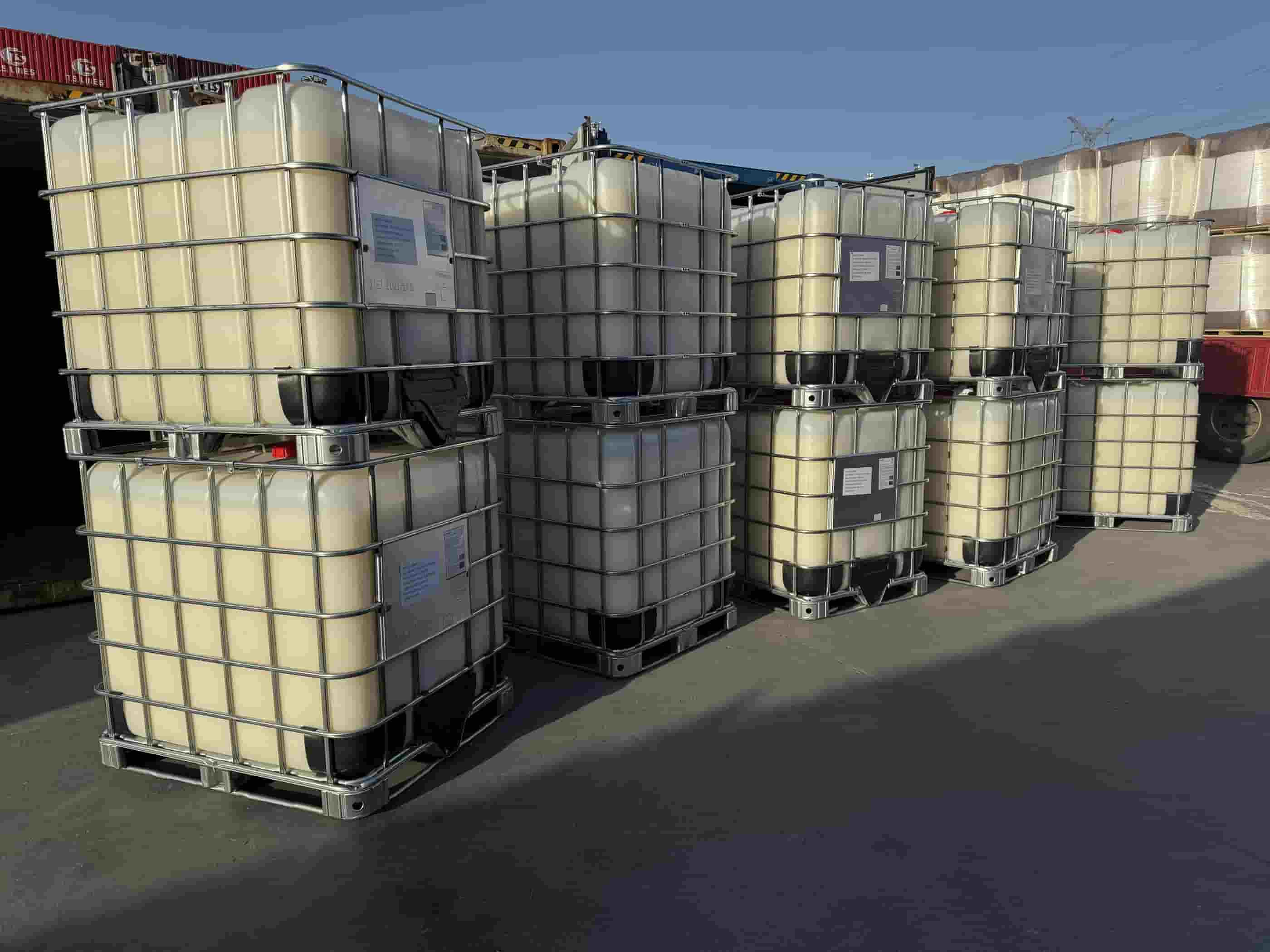Polydiallyl dimethyl ammonium chloride (Polydadmac) is a high-molecular-weight, cationic polymer widely used in a variety of industries for its flocculation, coagulation, and dewatering properties
polydadmac of FL4450 FL4430 can be replaced by asiafloc-DADMAC
Material
- polydadmac
Color
- light yellow
Application
- water treatment ,mineral processing ,testile
Certificate
- ISO9001 ,ISO14001
Place of Origin
- China
Other Names
- polydadmac
Brand Name
- asiafloc
Usage
- water treatment ,mineral processing ,textile ,oil and gas
polydadmac of FL4450 FL4430 can be replaced by asiafloc-DADMAC
Polydiallyl dimethyl ammonium chloride (Polydadmac) is a high-molecular-weight, cationic polymer widely used in a variety of industries for its flocculation, coagulation, and dewatering properties. It is most commonly supplied as an aqueous solution with a solid content of 30-50%. This concentrated form makes it highly efficient and cost-effective in a wide range of applications, particularly where rapid reaction times and high-performance flocculation are needed. The following are the main applications of polydadmac (30-50% solid content), across industries such as water treatment, paper manufacturing, textiles, oil and gas, and others.
1. Water and Wastewater Treatment
One of the primary uses of polydadmac (30-50% solid content) is in water and wastewater treatment. Due to its cationic nature, polydadmac effectively neutralizes the negative charges on suspended particles in water, allowing for their aggregation and subsequent removal. This makes polydadmac an essential agent in both municipal and industrial water treatment processes.
Drinking Water Treatment: In drinking water treatment plants, polydadmac is used as a coagulant to improve water clarity and ensure that water is free from harmful contaminants. It aids in the flocculation of fine suspended particles like organic matter, clay, and silt. Polydadmac works synergistically with traditional coagulants like aluminum sulfate, enhancing the overall efficiency of water purification. Additionally, it helps in reducing the amount of residual coagulants left in the treated water, making it safer for consumption.
Municipal and Industrial Wastewater Treatment: In municipal wastewater treatment plants, polydadmac is employed to remove suspended solids, oils, and organic impurities from wastewater. Its high cationic charge helps to aggregate suspended particles, forming flocs that can be easily separated from the water. In industrial settings such as textiles, food processing, and chemicals, polydadmac is used to treat complex effluents containing oils, fats, dyes, and other contaminants. This ensures that wastewater is sufficiently treated before being discharged or reused.
Sludge Dewatering: Polydadmac is commonly used in the dewatering of sludge produced in wastewater treatment plants. By promoting the flocculation of fine particles, polydadmac improves the size and density of the sludge, making it easier to remove excess water. This enhances the efficiency of the dewatering process and reduces the volume of sludge, which can then be disposed of more easily or processed further. This is especially important in large-scale water treatment plants where the management of sludge is a significant concern.
2. Paper and Pulp Industry
The paper and pulp industry is one of the major users of polydadmac due to its ability to enhance paper production, reduce material loss, and improve the quality of the final product. Polydadmac is utilized for its retention, drainage, and dewatering properties, helping to optimize various stages of the papermaking process.
Retention Aid: Polydadmac is used as a retention aid in the paper manufacturing process. It improves the retention of fine fibers, fillers, and pigments during the formation of the paper sheet. This prevents the loss of valuable materials, which otherwise would end up in the wastewater stream. By retaining more material within the paper, manufacturers can reduce waste, improve the quality of the paper, and enhance production efficiency.
Flocculation of Wastewater: In paper mills, a significant amount of wastewater is generated, which contains dissolved organic matter, fibers, and other particulate materials. Polydadmac is used in the flocculation of these suspended solids, promoting their aggregation into larger particles or flocs that can then be removed through sedimentation or filtration. This helps to treat the paper mill effluent and reduces the environmental impact of wastewater discharge.
Improvement of Paper Quality: Polydadmac is also used to enhance the physical properties of paper products. It helps in improving paper strength, smoothness, and surface properties, which are important for the production of high-quality paper and paperboard. By aiding in the retention of various materials within the pulp, it ensures better formation and higher quality paper sheets.
3. Textile Industry
Polydadmac is also extensively used in the textile industry for its ability to flocculate and bind particles, as well as its role in enhancing dye fixation and improving the quality of textile products.
Dyeing and Finishing: In the textile industry, polydadmac is used as a coagulant and fixing agent in the dyeing process. It helps to improve the absorption of dyes by the fabric, ensuring that the dye molecules are more effectively retained on the fibers. This leads to more vibrant and consistent colors, reducing the need for excessive dye usage. Polydadmac is also used in textile finishing applications to improve the fabric's softness, smoothness, and texture, enhancing the overall feel of the fabric.
Wastewater Treatment in Dyeing: The textile industry is notorious for generating large volumes of dye-laden wastewater, which can be difficult to treat due to the complex chemical composition of the effluents. Polydadmac is used to flocculate and remove dye particles, suspended solids, and other contaminants from the wastewater. This not only makes the effluent safer for discharge but also allows for the reuse of water in the dyeing process, promoting sustainability in textile production.
Anti-static Properties: Polydadmac can also be used in textile finishes to impart anti-static properties to fabrics. This helps reduce static build-up in synthetic fabrics, making them more comfortable to wear and easier to handle in the manufacturing process.
4. Oil and Gas Industry
In the oil and gas industry, polydadmac plays a crucial role in various processes, particularly in drilling operations and the treatment of produced water.
Drilling Fluids: In drilling operations, polydadmac is used as a flocculant in water-based drilling fluids. It helps to coagulate suspended solids, such as drill cuttings, making it easier to separate these solids from the drilling mud. The improved flocculation reduces the viscosity of the drilling fluid, enhances the flow properties, and makes the mud more efficient in carrying away cuttings. This allows for smoother drilling operations and minimizes the environmental impact of drill fluid waste.
Produced Water Treatment: Produced water, which is a byproduct of oil and gas extraction, often contains oils, greases, and suspended solids. Polydadmac is used to treat this water by flocculating oils and solid particles, making it easier to separate them and facilitate their removal. The treated water can then be safely discharged or, in some cases, reused in the extraction process.
Water Clarification: Polydadmac is also used for general water clarification purposes in oilfields. Whether it’s cooling tower water or water used in injection systems, polydadmac helps to remove suspended solids and oils, ensuring that water systems remain clean and efficient, which is crucial for the safe operation of equipment.
5. Cosmetics and Personal Care
The cosmetic and personal care industries make use of polydadmac due to its conditioning, antimicrobial, and emulsifying properties. It is often found in products that require a smooth feel and improved stability.
Conditioning Agent: Polydadmac is used in shampoos, conditioners, and other personal care products due to its ability to improve the texture and softness of hair and skin. It forms a thin film on the surface of the hair, providing smoothness, reducing frizz, and making hair easier to manage. It can also impart a silky texture to lotions and creams, enhancing the sensory experience for users.
Antimicrobial Properties: Due to its cationic nature, polydadmac exhibits antimicrobial properties, which make it useful in personal care products that require extended shelf life or antibacterial effects. It is commonly used in formulations for products like deodorants, moisturizers, and skin-care products to prevent bacterial growth and enhance product safety.
6. Mining Industry
In the mining industry, particularly for mineral extraction, polydadmac is used in various applications, including mineral processing and dust control.
Mineral Processing: In mineral processing, particularly in the extraction of precious metals like gold and copper, polydadmac is used to aid in the separation of valuable minerals from waste material. It works as a flocculant in flotation circuits, helping to aggregate fine particles and increase the efficiency of the extraction process. This enhances the yield of valuable minerals while minimizing the environmental impact of the operation.
Dust Suppression: Mining operations produce a significant amount of dust, which can be a serious health and environmental hazard. Polydadmac is used in dust control systems to bind dust particles together, preventing them from becoming airborne. This helps reduce the risk of respiratory problems for workers and minimizes the environmental impact of dust pollution in mining areas.





551.jpg)
